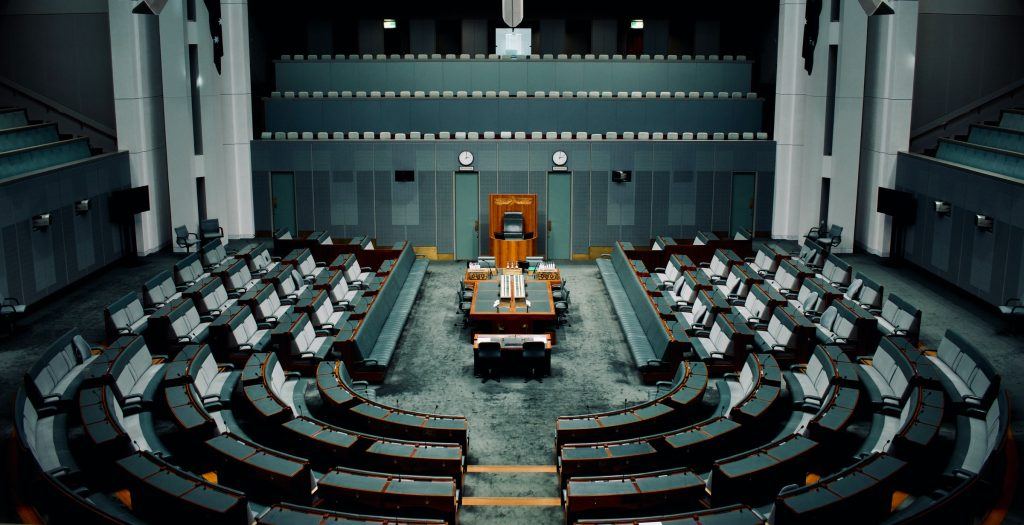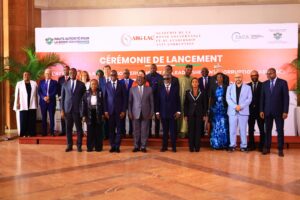Many of the key aspirations of the open government movement – pursuing rights-based approaches to open government, institutionalizing reforms, promoting and protecting civic space, defending democratic processes, and ensuring an open response, recovery, and renewal from the COVID-19 pandemic – require the support and buy-in of parliaments. There is also a growing demand from citizens for parliaments to be more open, inclusive, and effective in representing the interests of all.
Since OGP launched, parliamentary engagement has been an integral part of the open government philosophy and a key element to achieve ambitious open government reforms. Parliamentary engagement in OGP ranges from parliaments actively participating in national multistakeholder fora and leading commitments in the national action plan to convening their own co-creation processes.
In the open government context, parliaments specifically have a role to play in:
- Taking legislative action: Championing open government values by introducing, reviewing and ratifying legislation relevant to open government or approving budgets for open government reform.
- Ensuring parliamentary oversight: Holding governments accountable for open government reforms and opening up their own oversight processes to public scrutiny.
- Opening up parliamentary processes: Adopting open government principles – transparency, accountability, participation and inclusion – in the parliamentary institution and processes.
- Creating space for dialogue: Fostering cross-party dialogue and support needed to advance and institutionalize open government reforms.

Value Proposition of Engaging Parliaments in OGP
Engagement of parliaments in OGP – whether through formal participation in co-creation or other means of coordination – stands to benefit all OGP stakeholders.
For parliaments, engagement with the OGP platform domestically can provide an additional mechanism to hear from citizens and civil society between electoral cycles on how they can better serve the people they represent, and stay abreast of the commitments governments are taking on and need to be held accountable for. Internationally, OGP provides a global platform for peer learning, accessing expertise from OGP’s vast network of practitioners, and showcasing successes.
For the executive branch, parliamentary engagement opens up opportunities for securing legislation that enables executive branch commitments, resourcing for implementation, and institutionalizing reforms. When the executive branch engages citizens and civil society in their OGP national action plan co-creation processes, inputs from these groups often reflect aspirations or grievances that cannot be addressed by the executive action alone.
For civil society organizations, parliamentary engagement is a crucial aspect of securing the sustainability of reforms across administrations and political cycles, and for advocating for citizen interests and rights.

OGP’s Approach to Parliamentary Engagement
Parliaments that decide to engage with OGP have the following options:
- Participation in the national or local OGP process
- Participation via submission of a standalone Open Parliament Plan
- Promote openness beyond the OGP platform
The memorandum for parliamentary engagement in OGP sets out the rationale and approach for parliamentary engagement in OGP. The space for, and specifics of, parliamentary engagement in each OGP process are primarily determined by domestic actors involved in the dialogue. Parliamentary engagement is strongly recommended, especially where it can advance critical open government reforms, but it is not an OGP requirement for participation.
Guidance Materials

Recommendations
Explore our list of recommendations for actions that parliaments can take to advance open government through legislation, oversight, opening up parliamentary institutions and processes, and fostering dialogue.
Resources
Find useful resources regarding working with Parliaments in OGP below. For more information about OGP’s Open Parliaments work, click here.

In Côte d’Ivoire A United Front Against Corruption
Côte d'Ivoire is opening up the fight against corruption through a new strategy built with civil society. From digital tools to whistleblower protection, a fragile but promising dialogue is underway.

